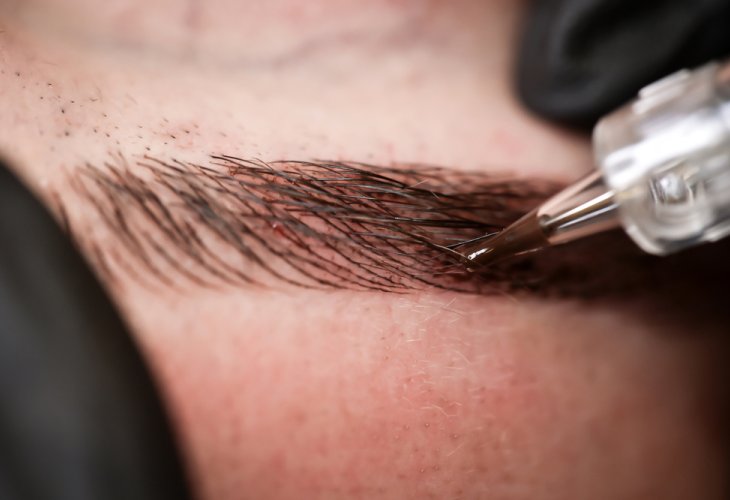Jewish Law
Is Permanent Makeup the Same as a Forbidden Tattoo?
What Judaism teaches about tattoos, permanent makeup, and preserving our G-d-given dignity
 (Photo: shutterstock)
(Photo: shutterstock)Many people know that the Torah forbids tattooing. But what not everyone knows is that tattooing is not a modern trend however, it’s a practice that dates back thousands of years and is closely connected to idol worship.
The Torah says clearly in Vayikra (Leviticus) 19:28: “You shall not make cuts in your flesh for a person [who has died]. You shall not etch a tattoo on yourselves. I am Hashem.”
This isn’t just a rule about appearance. The Talmud and Midrash (Jewish oral teachings and commentary) link tattoos to powerful stories, including one about King Jehoiakim, who rebelled against both Hashem and the Babylonian ruler Nebuchadnezzar. His downfall was terrible, and the sages explain that among his many sins, one stood out: he had a tattoo engraved on his body.
The Talmud describes how, after his death, Jehoiakim was punished harshly, and part of that was directly related to the tattoo found on his flesh. This shows just how seriously the Torah views this commandment.
Is a tattoo only forbidden if it’s permanent?
Rashi, one of the most well-known Torah commentators, explains that the prohibition refers to writing that’s carved into the skin and can never be erased. That’s the kind of tattoo the Torah is talking about, one done with a needle that leaves a lasting black mark.
Other commentators add that even if a tattoo isn’t truly permanent, if it stays on the body for a long time, it may still fall under the Torah’s prohibition. So, halachah (Jewish law) teaches us to avoid even semi-permanent tattoos.
Is the prohibition only about idol worship?
Someone might wonder if tattoos were originally connected to idol worship, maybe they’re only forbidden when used in that way?
The Rambam (Maimonides) answers this clearly. He explains that the Torah forbids all types of tattoos, not just those linked to idol worship. Even though tattoos once marked someone as a “servant” of a false god, today the prohibition still stands, even if the tattoo has no connection to idols or images.
So what about permanent makeup?
Based on all of this, many poskim (halachic authorities) agree that permanent makeup may be allowed in certain cases, especially because it’s very different from tattooing in some key ways:
Permanent makeup is done on the upper layers of the skin, not deeply like traditional tattoos.
It isn’t really permanent. It usually fades after two to four years.
It has nothing to do with idols or spiritual markings.
There’s also another important factor: human dignity. The Torah places a high value on protecting a person’s kavod (dignity). So if someone wants permanent makeup to cover a scar, or to create the look of eyebrows when they have none, many rabbis permit it because it helps the person feel whole and respected.
However, when it comes to applying permanent makeup only for beauty or enhancement, without any emotional or medical need, the situation is more complicated. In that case, it's important to ask a trusted rabbi for guidance.
A special case: permanent eyeliner
One specific area that halachic authorities are more cautious about is permanent eyeliner. This type of makeup tends to last much longer and is closer in nature to tattooing. If someone feels they have a strong reason for getting it done, they should speak with a qualified rabbi to clarify whether it’s allowed in their situation.
What if someone already has a tattoo?
If a person already has a tattoo, there are options to remove it. Many do so as part of their teshuvah (return to Hashem). And if a person with tattoos has passed away, the family should consult a rabbi about possible spiritual rectification.
Can a Jew work as a tattoo artist for non-Jews?
According to Jewish law, non-Jews are not forbidden from having tattoos. Because of this, a Jewish tattoo artist may work on non-Jewish clients. But like many things, it’s always best to discuss with a rabbi if you’re unsure.

